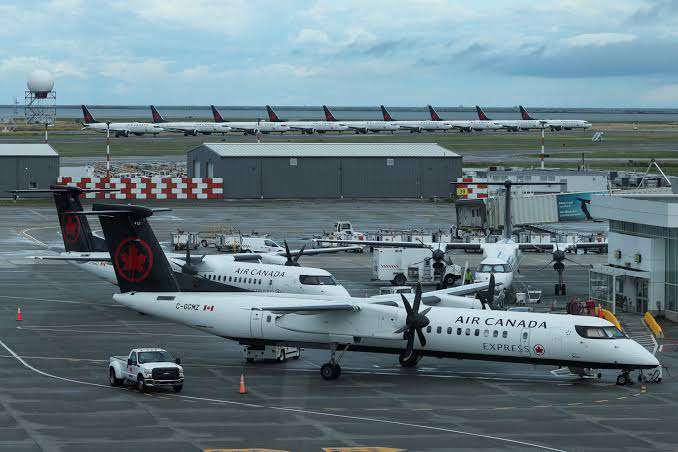Aviation
Air Canada strike ends as tentative deal reached with flight attendants

Air Canada and the Canadian Union of Public Employees (CUPE), which represents about 10,000 flight attendants, have struck a tentative agreement that ends a disruptive four-day strike which grounded thousands of flights and stranded more than 130,000 passengers across Canada and abroad.
The deal, announced Tuesday, followed marathon negotiations that resumed late Monday after a standoff that defied a back-to-work order from Ottawa. CUPE hailed the breakthrough as a landmark victory for workers in the airline sector.
“Unpaid work is over. We have reclaimed our voice and our power,” said CUPE spokesperson Hugh Pouliot, describing the agreement as “transformational” for flight attendants who had long demanded fair pay for time spent preparing planes on the ground — a practice that had effectively left large chunks of their labour uncompensated.
While terms of the settlement remain confidential pending ratification, union leaders said it includes meaningful wage increases and recognition of time spent on pre- and post-flight duties. Rank-and-file members are expected to vote in the coming days, and if they reject the deal, the strike could resume.
Air Canada, for its part, apologised for the massive disruption. “The suspension of our service is extremely difficult for our customers. We deeply regret and apologize for the impact on them of this labour disruption,” the airline said in a statement. Executives warned that it could take up to a week to fully restore schedules, given the scale of cancellations and the need to reposition aircraft and crews.
The strike, which began early Saturday, underscored long-running tensions between Air Canada and its cabin crew over pay equity and working conditions. Flight attendants had voted 99.7% in favour of the industrial action — a staggering mandate that union leaders said reflected years of frustration over stagnant wages despite record post-pandemic demand for air travel.
Labour experts noted that the confrontation may set an important precedent for Canada’s airline industry. “This dispute is about more than Air Canada. It’s about the future of work in aviation, where employees have often been asked to absorb more strain while airlines chase profitability,” said Karl Bélanger, a labour analyst in Montreal.
The Liberal government, which had tried to force an end to the strike through an emergency order by Employment Minister Randy Boissonnault, faced criticism for appearing to side with management. CUPE argued that the directive violated workers’ constitutional right to strike, framing the stoppage as a fight not only over wages but also over Charter rights.
For passengers, the impact was immediate and painful. Families missed holidays, business travellers scrambled for alternatives, and airports from Toronto to Vancouver were scenes of long lines and mounting frustration. Analysts estimated the strike cost Air Canada tens of millions of dollars in lost revenue and reputational damage.
With the tentative settlement in place, attention now shifts to whether flight attendants will ratify the deal — and whether it signals a turning point in how Canada’s largest carrier treats its frontline workforce.


